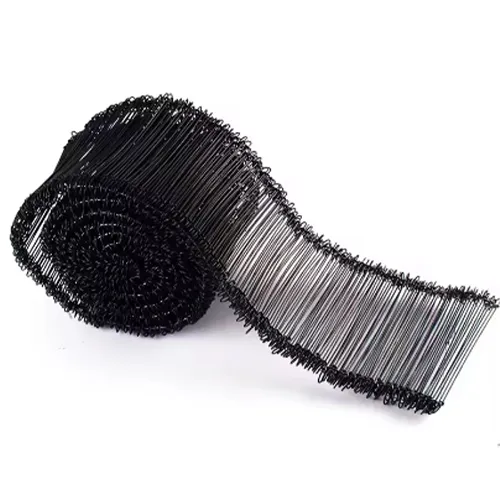-
 Phone:
Phone: -
 Email:
Email:

Does rebar tie wire corrode over time and affect structural integrity?
Does Rebar Tie Wire Rust?
Reinforced concrete is a critical component in modern construction, providing strength and durability to structures such as buildings, bridges, and highways. One essential element in reinforced concrete is rebar (reinforcing bar), which is often tied together using wire. However, a common concern among engineers and builders is whether the tie wire used for securing rebar can rust and, if so, how this affects the overall integrity of the structure.
Understanding Rebar Tie Wire
Rebar tie wire is typically made from low-carbon steel, which provides the necessary strength and flexibility to hold rebar in place during the pouring of concrete. The wire is usually thin, ranging from 16 to 18 gauge, and is designed to be durable enough to withstand the stresses of construction while remaining easy to work with. However, because it is made of steel, it is susceptible to rust and corrosion.
The Rusting Process
Rusting is a chemical reaction that occurs when iron or steel is exposed to moisture and oxygen over time. In the case of rebar tie wire, environmental conditions, such as humidity, rainfall, and even pollutants, can accelerate this process. Once the wire begins to rust, it can lose its structural integrity, making it less effective in securing the rebar.
Implications of Rust on Rebar Tie Wire
does rebar tie wire rust

The presence of rust on tie wire can lead to several issues. First, when tie wire deteriorates, it may no longer provide adequate support for the rebar, potentially compromising the structural integrity of the concrete. The rebar may shift or move during the pouring process, leading to uneven distribution of strength in the concrete. This can have serious safety implications, especially in load-bearing structures.
Secondly, rust can introduce contaminants into the concrete mix. Upon rusting, the iron oxide that forms can expand and exert pressure on the surrounding concrete. This process, known as concrete spalling, can lead to cracking and other forms of damage in the finished structure. Moreover, if rusted tie wires are not addressed, they can continue to rust and corrode, potentially leading to the need for costly repairs or replacements down the line.
Preventive Measures
To mitigate the risk of rusting tie wire, several strategies can be employed. Firstly, using galvanized tie wire, which has been coated with a layer of zinc, can help protect against corrosion. The zinc serves as a sacrificial barrier, preventing the underlying steel from coming into direct contact with moisture and oxygen.
Another effective approach is to ensure that the tie wire is stored properly before use. Keeping it dry and away from moisture can significantly reduce the likelihood of rust formation. Additionally, applying protective coatings or sealants to the wire prior to installation may offer added protection against corrosion.
Conclusion
In conclusion, while rebar tie wire plays an essential role in the construction of reinforced concrete structures, its susceptibility to rust is a critical factor that cannot be overlooked. Rust can compromise the integrity of both the wire itself and the overall structure that relies on rebar. By utilizing galvanized tie wire, storing it properly, and employing protective measures, builders and engineers can significantly reduce the risks associated with rust. Ensuring the durability and safety of structures demands attention to detail, particularly when it comes to materials that may be exposed to moisture and the elements. By addressing these concerns proactively, the longevity and effectiveness of reinforced concrete can be maintained, contributing to safer and more resilient construction practices.
-
Wire Mesh for Every Need: A Practical SolutionNewsJul.25,2025
-
Steel Fences: Durable, Secure, and Stylish OptionsNewsJul.25,2025
-
Roll Top Fencing: A Smart Solution for Safety and SecurityNewsJul.25,2025
-
Cattle Farm Fencing Solutions for Maximum SecurityNewsJul.25,2025
-
Affordable Iron Binding Wire SolutionsNewsJul.25,2025
-
Affordable Galvanized Wire SolutionsNewsJul.25,2025
-
Wire Hanger Recycling IdeasNewsJul.25,2025








